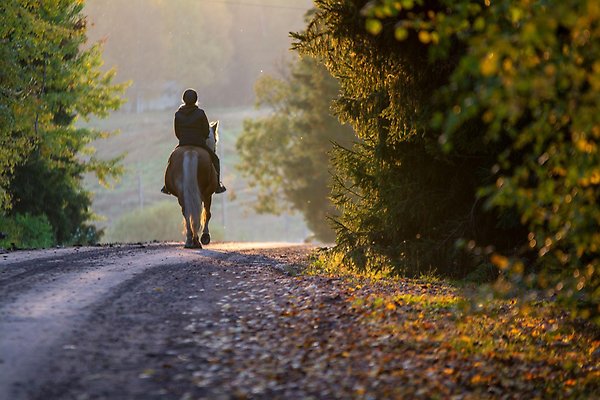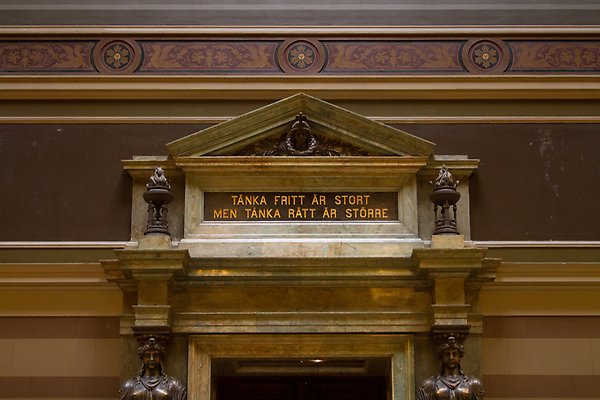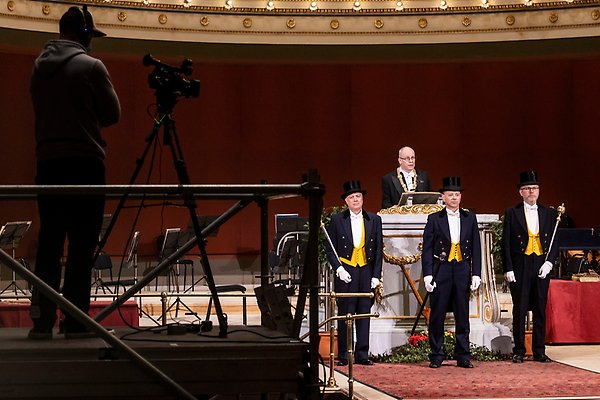Traces of history
Uppsala University’s long history shows in certain phenomena and symbols that appear at academic festivities.
Exercitia and riding at Uppsala University
Since 1663, Uppsala University has had a riding school where students and employees can practice equestrianism.
The riding school was established in the 17th century, when students were expected to be educated in exercitia, or practical subjects. These practical subjects also included French, Spanish, Italian, fencing, dancing, music and drawing.

Academic symbols
At the beginning of the 17th century, the University started to use two silver sceptres to symbolise the University’s independence. Today, the sceptres are carried by the Vice-Chancellor's ceremonial guards during academic festivities.
Another symbol is the Vice-Chancellor’s chain of office, donated to the University by King Oscar II, which the Vice-Chancellor wears at the Installation of Professors and other ceremonies.

The quotation “To think freely is great, to think rightly is greater”
Engraved in golden letters above the entrance to the Grand Auditorium in the University Main Building in Uppsala you see the words: “Tänka fritt är stort men tänka rätt är större” (“To think freely is great, to think rightly is greater”).
These words are not the University’s motto, they are a quotation from the jurist Thomas Thorild, who studied in Uppsala in the 18th century. Thorild was a provocative and controversial thinker who stirred debate in his time.
The history behind “To think freely is great, to think rightly is greater”

The Vice-Chancellor’s ceremonial guard
Not everyone might know that Vice-Chancellors have their own guards at their side during formal ceremonies.
One of them is Martin Andersson. His day job is as an administrator in the University Administration’s Communications Division, but on a few solemn occasions each year he takes on a role steeped in ancient traditions, leading the Vice-Chancellor’s ceremonial guard in which he as the beadle (head of the guard) and two cursors play important traditional roles.

Gluntarne
The famous song cycle Glunten och magistern (‘The boy and his teacher’), or simply Gluntarne as the songs are usually called, was written by Uppsala student Gunnar Wennerberg in the mid-19th century.
